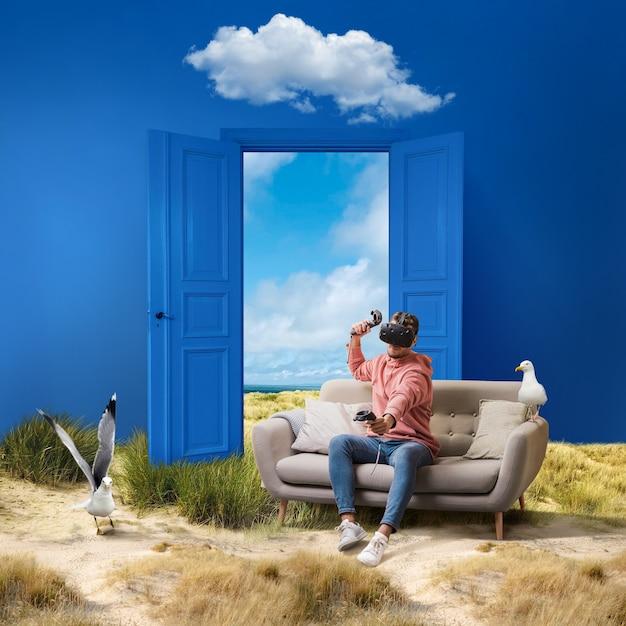Virtual Reality: The Future of Immersive Experiences

Virtual Reality (VR) is no longer just a futuristic concept; it is transforming industries and redefining the way we interact with digital environments. From gaming and healthcare to education and real estate, VR is creating immersive experiences that were once unimaginable. In this blog, we explore the latest trends, applications, and future potential of Virtual Reality.
What is Virtual Reality?
Virtual Reality (VR) is a computer-generated simulation that allows users to interact with a 3D environment through specialized hardware, such as VR headsets and motion controllers. By simulating sensory experiences, VR provides a highly immersive experience that makes users feel like they are physically present in a virtual world.
Key Applications of Virtual Reality
1. Gaming & Entertainment
VR has revolutionized the gaming industry by offering fully immersive, interactive environments. With devices like the Oculus Quest, PlayStation VR, and HTC Vive, players can step into virtual worlds, enhancing their gaming experience with realistic visuals and intuitive controls.
2. Healthcare & Therapy
Medical professionals use VR for training, surgical simulations, and patient therapy. VR-based exposure therapy helps treat anxiety disorders, PTSD, and phobias, while VR-assisted rehabilitation aids patients recovering from strokes or injuries.
3. Education & Training
VR enhances learning by allowing students to explore historical events, scientific phenomena, and complex concepts in a 3D environment. Flight simulators, military training programs, and medical education use VR to provide hands-on training without real-world risks.
4. Real Estate & Architecture
Virtual property tours enable potential buyers to explore homes remotely. Architects use VR to visualize and modify designs before construction, reducing costs and improving accuracy.
5. Workplace Collaboration & Remote Work
VR-powered virtual offices allow teams to collaborate in a shared space, regardless of location. Companies like Meta and Microsoft are developing VR meeting rooms where employees can interact using avatars, making remote work more engaging.
Future Trends in Virtual Reality
AI Integration: Artificial Intelligence (AI) is enhancing VR experiences by improving realism and adaptive interactions.
5G & Cloud VR: Faster internet speeds and cloud computing will make VR more accessible by reducing the need for high-end hardware.
Haptic Feedback & Sensory Enhancements: Innovations like haptic gloves and full-body suits will provide a more immersive experience by simulating touch and movement.
Metaverse Development: VR will play a crucial role in shaping the metaverse, creating interconnected digital environments for socializing, working, and entertainment.
Conclusion
Virtual Reality is rapidly evolving, transforming the way we experience digital content. As technology advances, VR will continue to reshape industries, offering innovative solutions that enhance learning, entertainment, and human interaction. Whether you're a gamer, a student, or a business professional, VR is set to redefine your digital experience.
Comments
Post a Comment